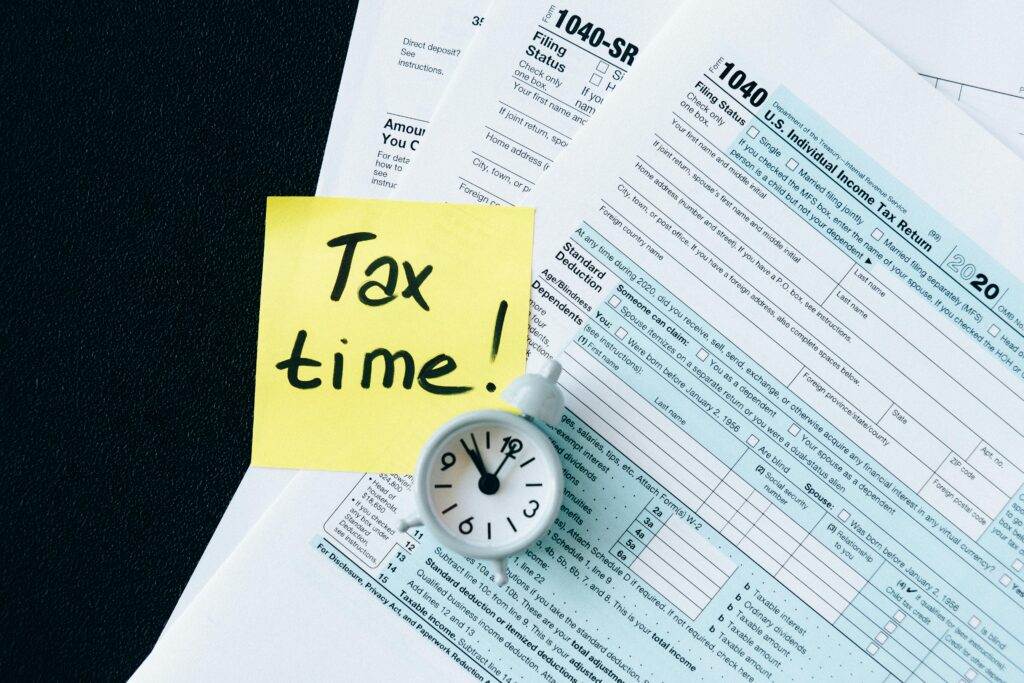Tax deductions are important when you’re self-employed because they can help lower your taxable income. Since you don’t have an employer paying some of your taxes (namely the self-employment tax), any tax breaks you qualify for can help reduce the amount of taxes you owe. Whether you operate as a sole proprietorship or have a partnership or LLC, the following are some common deductions self-employed individuals can make when filing their taxes.
Your Office or Home Work Space
If you have a space you use for your work, you can deduct some of the expenses of maintaining this space on your taxes. For example, if you own your home and use part of your house as an office, you can deduct a percentage of your mortgage interest, utilities, and any repairs you make to the space throughout the year on your taxes.
It’s important to be mindful when deducting these amounts because some deductions only apply to homeowners, not renters. However, if you rent an office space for your business—or any related equipment—you can deduct these costs from your business. You can also deduct a portion of the cost of your home office space from your rent if you are a tenant who works from home.
Direct Business Expenses
Any expenses related to items you use directly for your business—including internet and phone bills, the cost of running or maintaining your website, or purchases you make for your business, such as advertising or business cards—can be deducted from your taxable income if you are self-employed.
In addition, if you have credit card interest for items you’ve purchased for your business, you can deduct the interest on your taxes if you are self-employed. Continuing education classes for your current line of work are also tax-deductible, as are memberships related to your business, such as chamber of commerce memberships or professional associations.
Half of the Self-Employment Tax
You can deduct half the amount of self-employment tax from your income on your personal tax return. If you were a traditional employee, your employer would pay half of this tax for you. However, if you are self-employed, you have to pay all of it. Fortunately, you can deduct half the amount you owe as a business expense.
The Qualified Business Income (QBI) deduction also allows you to deduct 20% of your taxable income if the total is below $170,050 for single filers and $340,100 for joint filers for the 2022 tax year. This deduction is for pass-through income, meaning those who report business income on their personal tax return, such as self-employed filers. However, keep in mind that these limits only apply to specified service businesses—other businesses do not have a limit on QBI.
Your Health Insurance Premiums
Self-employed individuals typically have to pay for their own health insurance since they aren’t able to get it through an employer. The good news is that you can deduct your health and dental insurance premiums on your taxes if you are self-employed. In addition, if you have to pay for health insurance for your family, you can deduct the cost of the premiums you paid for this coverage even if your children aren’t dependents.
Travel Expenses
If you travel for your business, you can deduct the cost of travel, including mileage, flights, other transportation, and food. However, these expenses must be directly related to your business purposes. Travel expenses for any people traveling with you for non-business purposes, such as a spouse, friend, or child, can’t be deducted on your taxes—you can only deduct the travel expenses for yourself.
Are You Missing Any Tax Deductions?
When you’re self-employed, any tax deductions you qualify for can make a significant difference on the amount of taxes you owe. Working with an experienced tax professional can ensure you aren’t missing any deductions that could help you. Contact our team at Scharf Pera & Co., PLLC today to learn more about our tax preparation and consulting services for individuals and small businesses.

